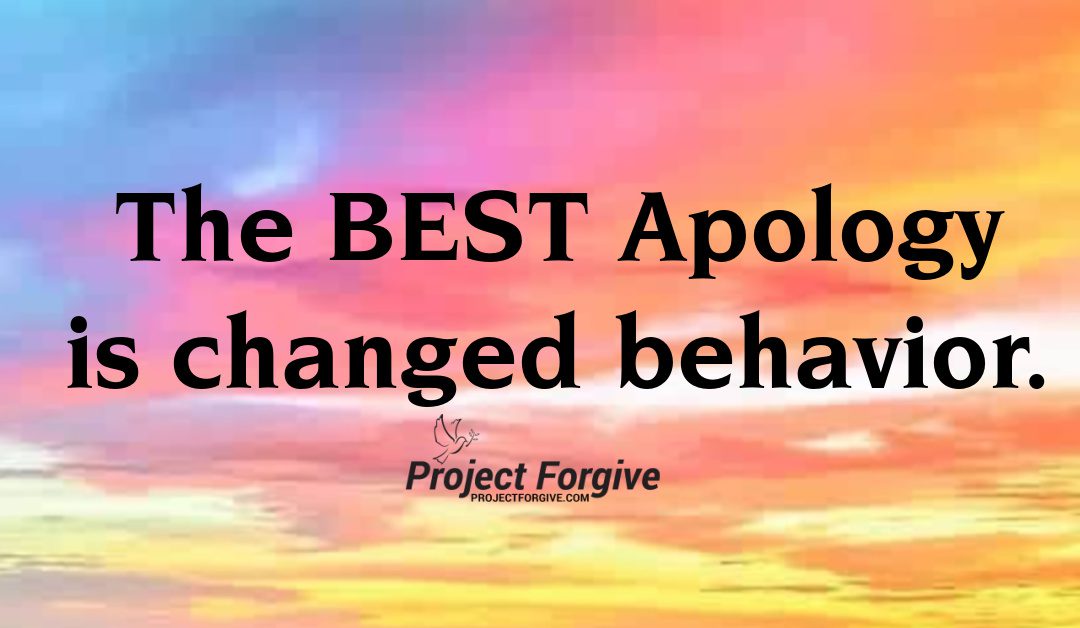How many times have you received an inauthentic or thrown together apology that lands flat? An apology that missed the mark and left you feeling worse than before the conversation of forgiveness even started?
Probably a lot.
The thing is, many of us don’t have the skills to apologize in a way that honors another person.
Apologizing is its own art form. It’s a real communication skill. It also takes vulnerability, courage, and self-awareness to create a connection after there has been pain or a mistake.
While we don’t have control over how someone apologizes to us, we do have the ability to find a powerful way to apologize to someone when we’ve done something wrong.
A good apology is more than just saying the words “I’m sorry.” People can say they are sorry and still continue with the same behavior. Apologizing with no change gets old really fast and creates more mistrust.

With that said, here are the highlights of the six steps to apologizing that bring resolution:
1) You start with expressing regret. The more specific the better. Here’s an easy example that will help: “I’m sorry I didn’t pick up the kids on time. They were panicked, you were panicked, and no one could find me. I caused you a lot of fear. I promised I would be there at 5pm and I was a half-hour late. That is simply unacceptable and I’m sorry.”
2) Explain what went wrong. Explanations are really important to start the healing process, especially with honesty sincerity. Something like this is acceptable: “There’s really no excuse. I lost track of time and forgot what time it was. When I realized the time and that I was late, I felt heartbroken for letting you and the kids down.”
3) Accept and acknowledge responsibility. An example that could work: “I realize I screwed up. You counted on me as your partner. You need to be able to rely on me to do what I say I am going to do. Integrity is so important in our relationship, and I really dropped the ball.”
4) Offer some type of declaration of repentance. Your loved ones need to know your apology is not just lip service, that you are examining your actions and feel contrite. Try communicating like this: “When I tell you I will do something, I want you to feel peaceful about it. I want you to know that I will follow through on my commitments. I want you to trust deeply that you can count on me, not just with picking the kids up, but also, for anything that I commit to in our relationship. Talk is cheap and I want to make amends.”
5) Next is some kind of repair for the offense that caused your loved one harm or worry. Try communicating like this: “My job right now is to focus on making amends. I want to make this right. Let me take on the task of picking up the kids from baseball practice for the next month. I know it takes a lot of coordinating of schedules and I would like to do this to show you how important our family is to us. To make sure I don’t miss any future times, I will load up my calendar alarm to go off 30 minutes prior to pick up so I have a structure in place, so I don’t disappoint again. Will that work?”
6) And finally, ask for genuine forgiveness. Such as: “I am deeply sorry. Can you give me another chance to make this right? Can you forgive me?”
While those are the steps, there is also a final part of the apology skill set. It’s follow-through. Make sure you follow through on your commitment to do better, to make the necessary repairs, and lovingly come back together.
Even when someone accepts your apology, it can still take time and effort to allow for trust, safety and vulnerability to return to the relationship.
If inspired, please share.




